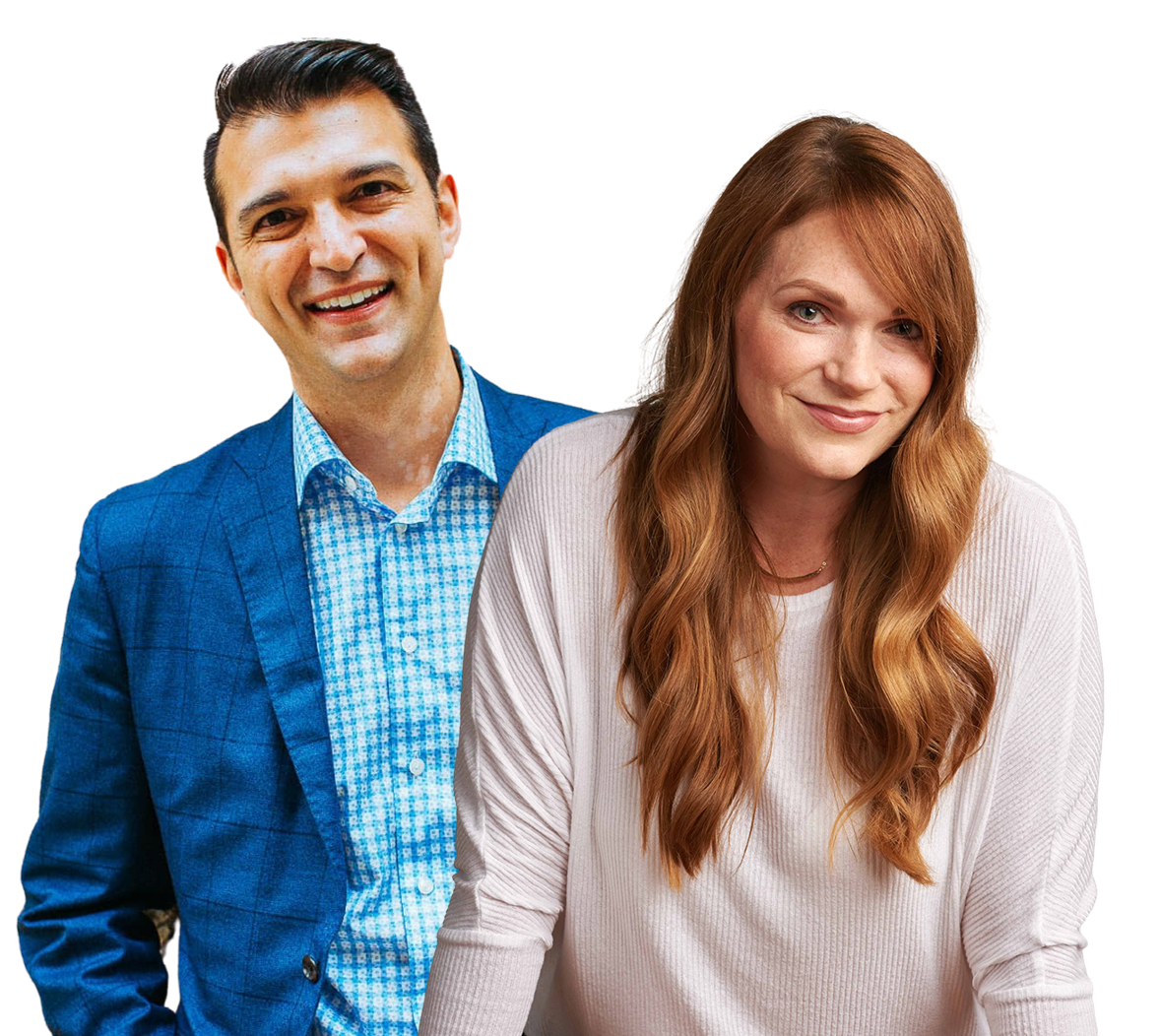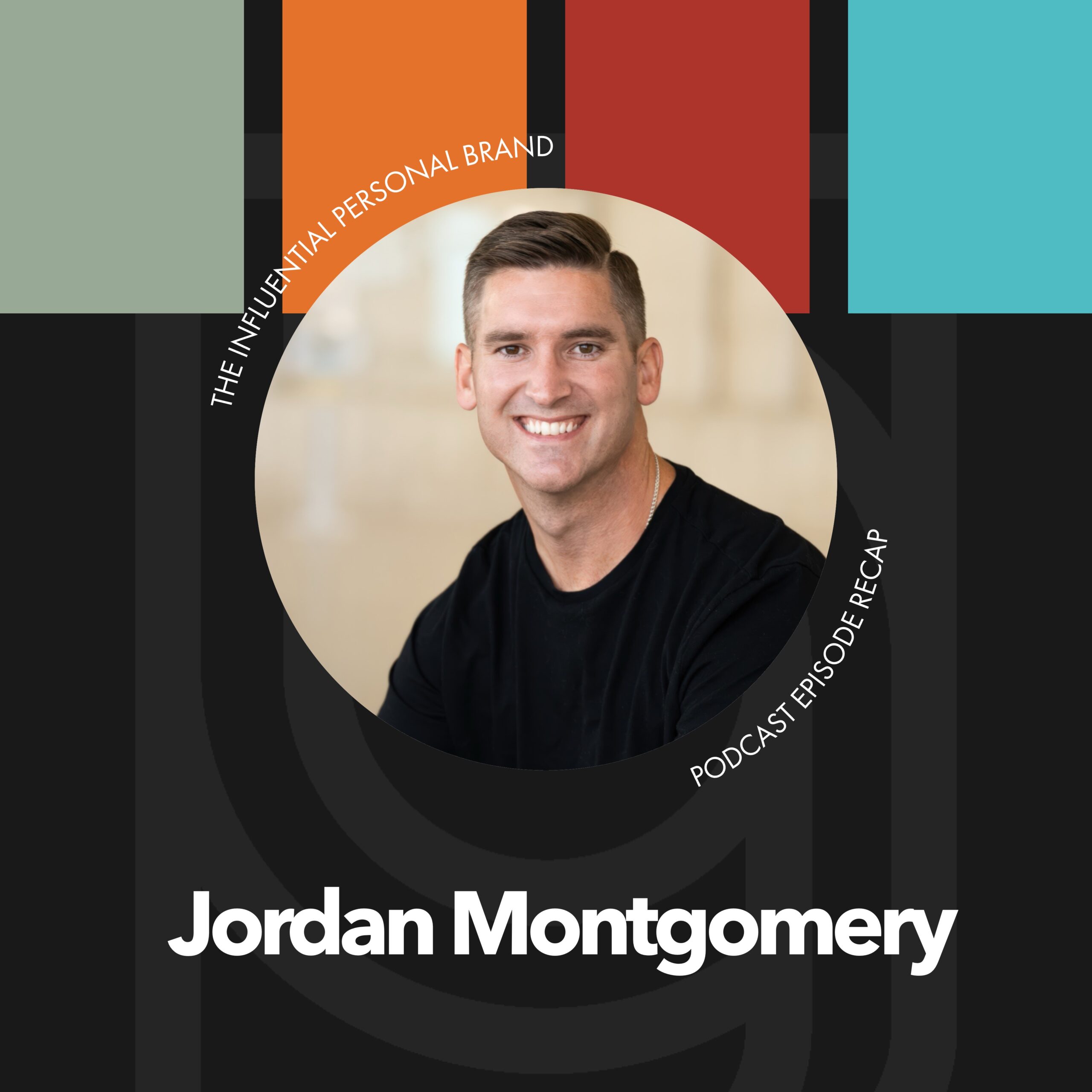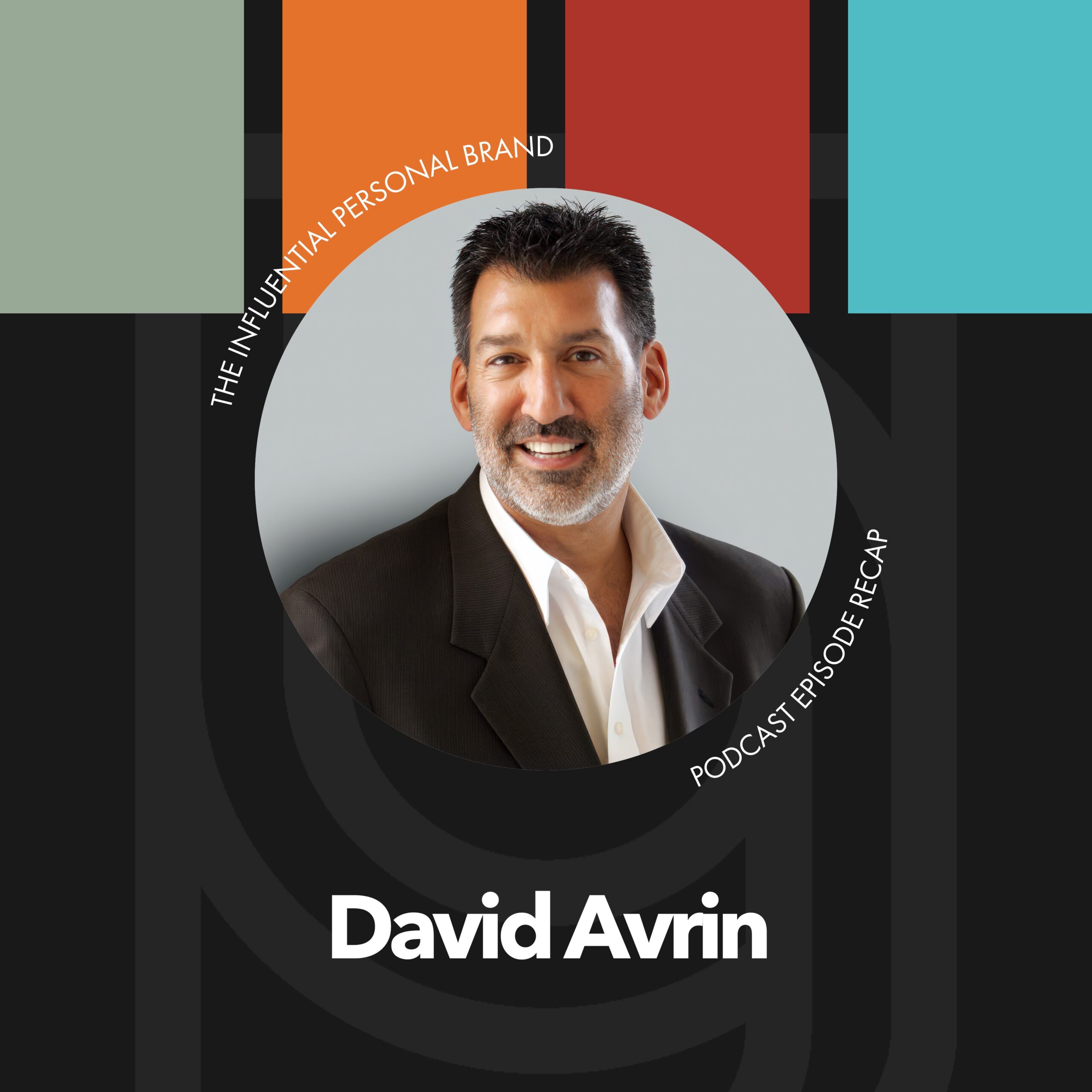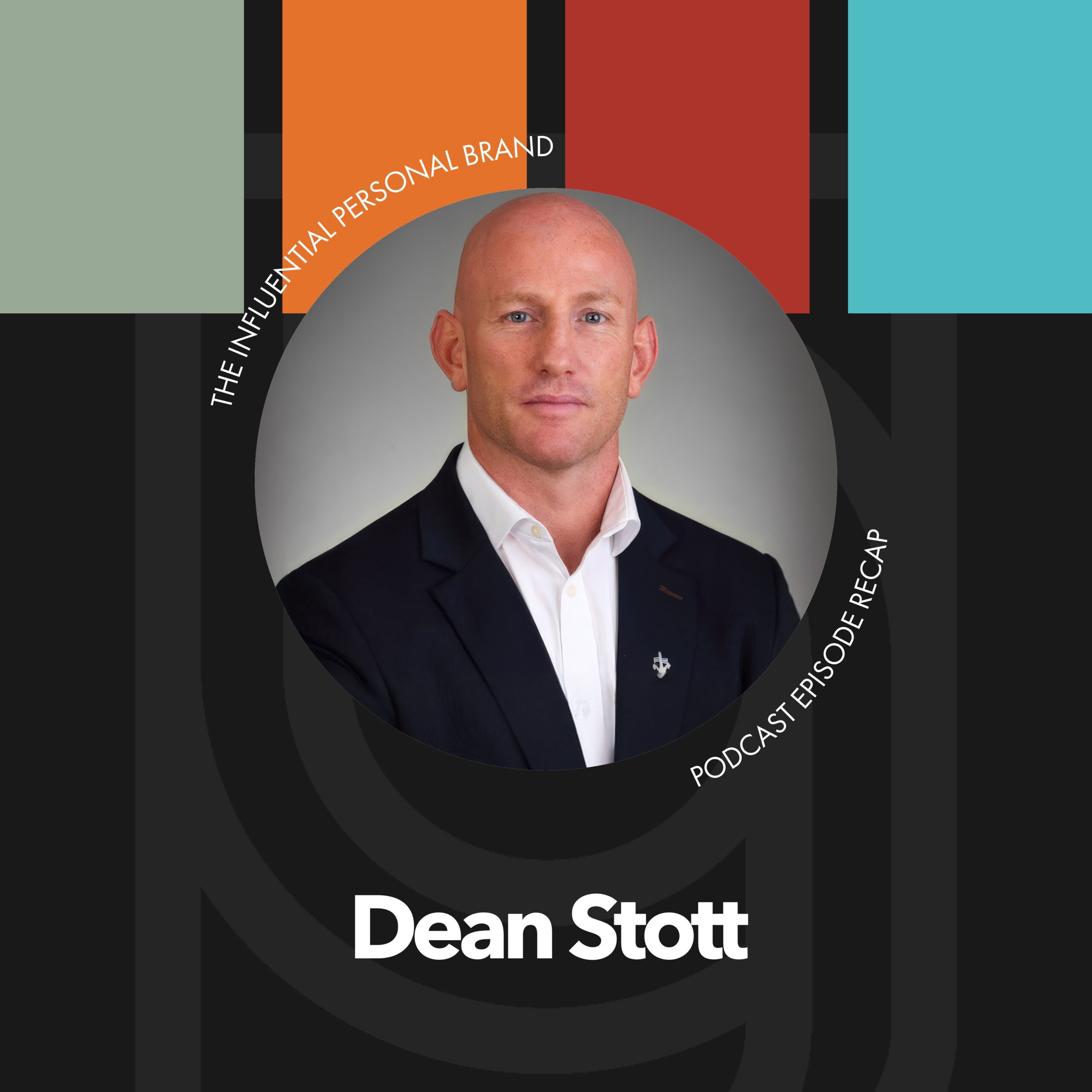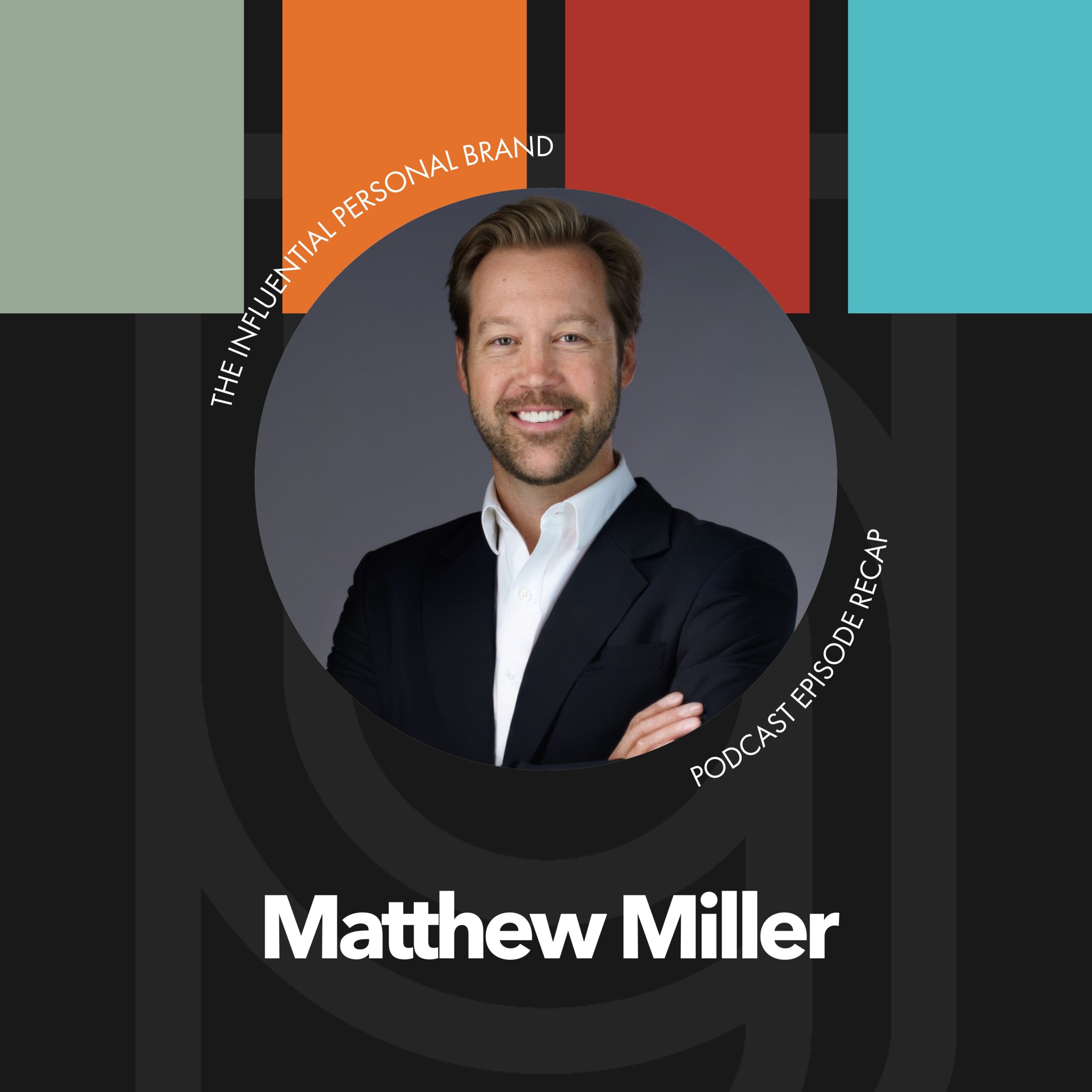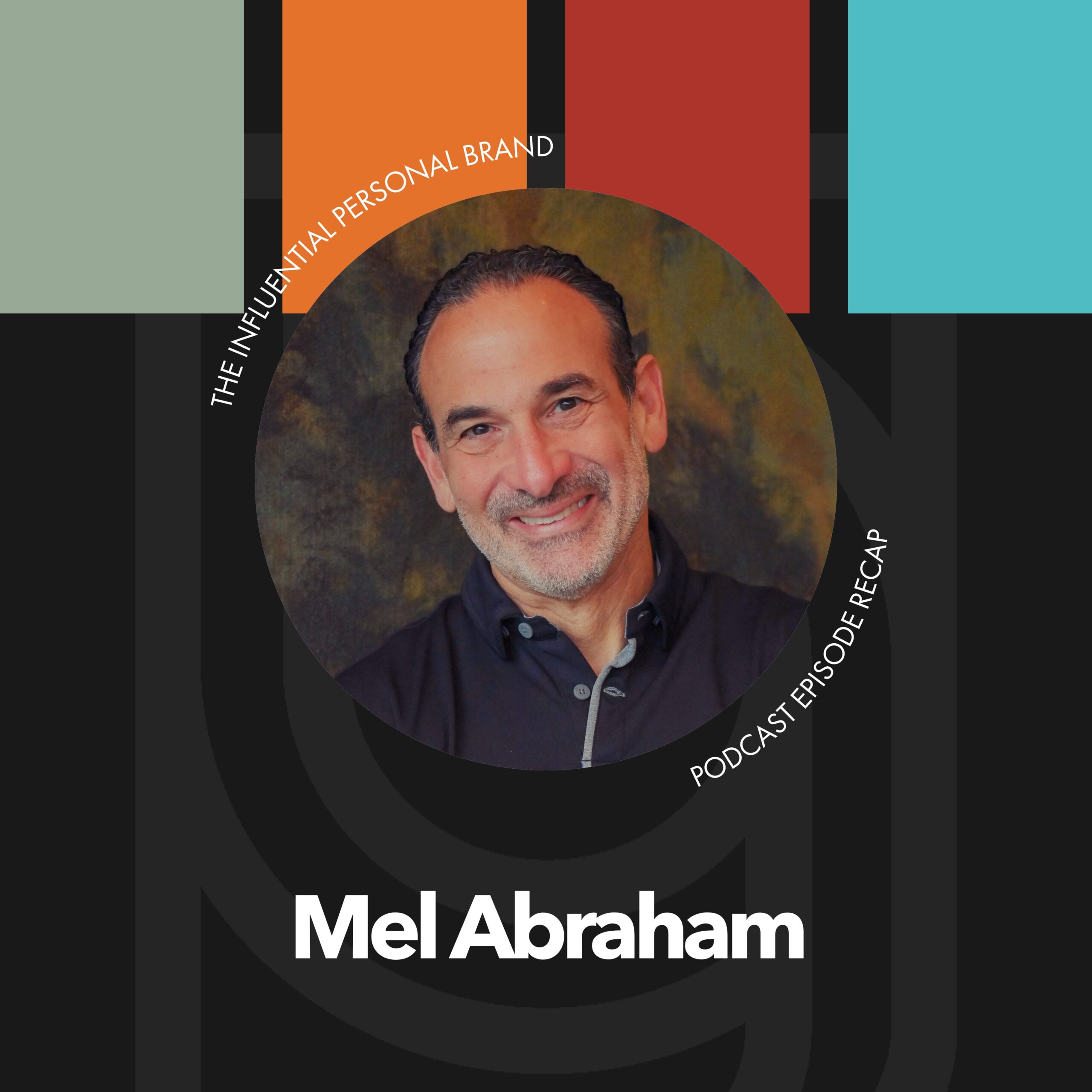Welcome to the recap edition of the Mike Michalowicz interview on the influential personal brand podcast. It’s your man, Rory Vaden here. Breaking it down for you. I’m rolling solo tonight. We have had craziness. We our three-year-old went to the emergency room to get stitches for the second time, I think in like six weeks. And we also had power without power for a few hours today. So it’s been a wild day, so momma’s not here and I’m rolling solo. And this interview with Mike, I I loved, and I’ll tell you, tell you right up, right up front. Oh, okay. Actually I have an important announcement. So before we dive into this with Mike, I want to let you know those of you that listen religiously every single week. Next week we’re not going to have episodes. All right.
RV: (01:03)
So we’re not disappearing, but just next week we are gone. And we’re not gonna publish an episode, but then we’ll pick up the schedule. So I wanted to let you know that in advance. Okay. So back to the topic at hand, which is the brilliant Mike Michalowicz, and I wanted to say right upfront that if, if you follow brand builders methodology, okay. If you’ve seen our various trainings been to one of our events, if you’re one of our clients, if you’re familiar with, you know, our overall structure we divide our training into four phases. Okay. And each phase has three different sections. Each, so we basically have 12 different sections of our curriculum. They all represent each of the 12 sections is a different two-day experience. So you, you know, people come to it as an event or they get it through one-on-one coaching or our private strategy sessions.
RV: (02:01)
But anyways, so our whole body of knowledge is organized into these four phases. And phase four is what we call eight figure entrepreneur. So that is where we talk about scaling a personal brand into a real business, which almost nobody does, and almost nobody has ever done. There’s so few people who have ever scaled something, you know, to eight figures, scaled a personal brand, eight figures, and then very few who have ever actually been able to sell that or exit that business. And that’s something that we love talking about because we’ve got a lot of entrepreneur, friends, and we, we love understanding like the real nature of small business. And it’s something that we have actually done grown a business to eight figures and then had an exit. Well, this interview with Mike, and then the another interview we did with Jim combi a while back, I would say are the two interviews of all the guests that we’ve had that have focused the most on phase four, which is, you know, eight figure entrepreneur, the concepts and ideas around how to build a truly scalable enterprise, something with, with equity value beyond just the income that it brings to the personal brand.
RV: (03:23)
So I just wanted to kind of give a quick shout out to that other interview with Jim Comey, that if you loved this and you love this concept of like, you know, building a real business as a real entrepreneur, then you should go back also and listened to the Jim combi interview where we talk about business valuation. And also the recap of course. So just a quick mention for that. All right. So my big, my three biggest takeaways here from Mike we’re just so good and so important and so relevant specifically to this concept of scaling a real business. And I, and I honestly think this episode transcends far beyond personal branding as, as a lot of them do, but, but this one definitely applies to, you know, all entrepreneurs in general. And so the first takeaway was sending that, here’s what he said. He said, the big fallacy
Speaker 3: (04:20)
Is top line thinking. The big, big fallacy is top-line thinking, and this is such, this
RV: (04:30)
Is such an important concept because It’s the wrong way of thinking. But it’s like the thing that people brag about is how much revenue do they do. And it’s really like, okay, it’s, it’s one thing to, to measure. But the real question is how much drops to the bottom line, what really shows up in your bank account, right? And it’s like, would you rather be the company that generated 5 million a year in revenue and you kept a hundred thousand or would you rather be the company that generated 1 million in revenue and you kept 500,000 and, and, and the, the, the obvious is the second, right. Specifically for personal brands where it’s like, usually a personal brand is not going to have much equity value because it’s built around the personality and thus, it makes it difficult to actually scale and not to scale necessarily, but to sell to someone else.
RV: (05:30)
Because if you pull that personality out of the business, it’s like, what is left? That’s, that’s challenging, which we’ll talk about, but this, just this concept of focusing on profit, right? And like, you hear this all the time too, of like, Oh, they did a seven figure launch and immediately we go, Whoa, seven figure launch, right? It’s not that seven figure launches are bad. Seven figure launches are great, but in your mind, it’s like this thing that brag about, and you go, well, okay, well, wait a minute. So if you did a seven figure launch and you had affiliates and you paid 50% to your affiliates, now you’re down automatically to half a million, and then you go, all right. And you look at all the vendors, you had to hire to pull it off. And maybe you had copywriters and video editors and video production crew and staging, and, you know, depends on everything that went into it.
RV: (06:18)
And it’s like, I don’t know, maybe, maybe you spent a hundred thousand dollars to make it, and then you go, all right, how much did you run in and paid traffic? Right. And so you go, well, I had to run a quarter million dollars in ads. And so now I got 250,000 there and a hundred thousand. And so it’s like, well, my million dollar launch, really one, I mean, it’s a million dollars in revenue, but 500,000 out the door to affiliates a quarter million out the door to Facebook, another a hundred thousand expenses. What I really had was $150,000. And then after I pay my team and, and my staff and my, all of my overhead, it’s like, what’s really left. So, you know, it just, it’s just a good reminder to, don’t be impressed by external sort of frivolous numbers. And don’t be intimidated by them.
RV: (07:14)
You know, I, I think it’s, it’s kind of similar to social media followers is we can be so infatuated with how many followers that somebody has, right. And you go, Oh my gosh, they got, let’s just say a hundred thousand and go, they have a hundred thousand followers. That’s amazing. But when they post something on social, because of the algorithms, that hundred thousand followers might actually legitimately get viewed by two or 3000 people. So it’s not that that’s bad. Right. It’s w that’s why wouldn’t you want to have more, you, you, you would, I’m not saying that it’s, it’s not, I’m not saying that it’s bad at all, but I’m saying if you had a choice between a hundred thousand social media followers, followers of which two or 3000 of those might actually see your post versus building an email list of 20,000 followers, where you send an email and you get, let’s say a 20% open rate.
RV: (08:18)
So that means you’re reaching 4,000 people. Every time you send an email to 20,000 and you only quote, unquote only have 20,000 on your email list. So it’s like, what really matters at the end of the day, right? Is what’s the real impact we’re making? What, what is the, is the net result? The net gain, not just the, you know, fancy super superfluous kind of numbers. And, and, you know, the other thing is that I think personal brands are a lot like golfers, which is they lie about their score all the time. I mean, personal brands are, I mean, I, I, I don’t mean to like harp on our space too much, but I say this delicately, but man, there’s a lot of dishonesty in what people report. Right. People say crazy stuff. I mean, they they’ll say crazy things like, Oh yeah, I’ve sold a hundred thousand copies of my book.
RV: (09:20)
And it’s like, well, you know, and it’s like, Oh, I sold them in the back of the room. And it’s like, well, you know, by my count, that means, you know, even if you’re doing really great, you’ve gotta be in front of about a half, a million people in audiences to sell that much in the back of the room. So, you know, it’s maybe not that likely. And I, and I’m not harping on anybody. I’m just saying for you, don’t be impressed by fake numbers. Don’t be impressed by things that don’t matter. Focus on the things that really matter. It’s not revenue, it’s profit, it’s not followers, it’s engagement, right. It’s, it’s, it’s not like any of these, there’s so many of these, these indicators, it’s not what people are saying is what they’re actually doing. And be focused on real impact and real reach.
RV: (10:13)
And don’t, don’t be intimidated or impressed you know, too much by the external and don’t allow yourself to be caught up in like, Oh, we made a lot of revenue. And at the end of the day, it’s like I had no money left over. All right. So that’s the first thing, the big fallacy of top-line thinking, the second thing, which is very much related to an eight figure entrepreneur concept is he said, the number one driver of a healthy business is the removal of the dependency of that business on the founder. And this is true. This is the whole crux of our eight figure entrepreneur event, which is the, the problem is dependency. Now for if you’re early in your brand journey, you might want to just skip past this because it’s so advanced. It’s, it’s, it’s not like relevant to most people until much later, but it’s also not a bad thing to kind of be, be thinking about. You know, always kind of having the end in mind is as dr. Stephen Covey said, which is that, You know, you, if you want us, there’s two
RV: (11:23)
Things happening here with your business. One is the ability of the business to generate income, right? Income is super valuable. Income is super useful. It’s like the money that comes to you to pay your bills and do stuff with. And you know, there’s a lot of ways to do that. We talk about the five ways to earn income, what we call the paids. And then we help people look for the dares, D a R E S things that are digital automated, recurring, evergreen, and scalable, the digital automated, recurring evergreen and scalable. That’s a brand builders group, original concept about driving income, but income is different than equity. Income is, you know, like income value is different from equity value. Income is like how much money you bring in home at the end of the day, equity value is what does this business generate an income or, you know, or in profit, let’s just use the word profit, not to confuse things.
RV: (12:25)
What does this business generate and profit without you? If you are gone, if you went on vacation for a year, what would happen to that business? And if the revenues and the, and or the profit would, would go way down, then you don’t have much equity value, which can be okay, right. It’s not necessarily to say that OU equity value is better now in a true entrepreneurial sense. It is. If you’re a quote unquote, a real entrepreneur, and you’re trying to grow a business, then that business would operate without you. But when you’re building a personal brand, you’re not necessarily growing a business, you’re growing an income stream. Now it’s possible to do both. And if you, you know, if you work long-term with brand builders, we’ll talk about that. And we’ll show you how how we do it and what we do and how we delineate between a personal brand and a business.
RV: (13:28)
But they’re both good when they’re both important. And, and, and sometimes they compete against each other because sometimes the way that you build the equity value is to give up income and to reinvest money into the business, into hiring more staff and training and operations and policies and procedures and people, right. But if you, if you want income, it’s like, no, I’m just trying to throw off as much income as I can. So it’s not that one is better than the other. What matters is that, you know, the difference between the two and most of all that, you know, which one is most important to you. And that gets back to why we do one-on-one coaching, because there’s not a right answer. There is a right way and a wrong way to execute certain skills involved in running a business and in PR building a personal brand.
RV: (14:23)
But which skills you need, which strategy you deploy D is dependent entirely upon you. So you can’t necessarily just take blanket advice that is out there for everybody and apply it directly to you. If the answer is, it depends. Should you have a podcast? It depends. Should you launch a book? It depends. Should it be self published or commercially published? It depends. Now, do we know how to do all those? Yes. But path you take is dependent upon everything in your life. What you care about, what you love doing, how much money you have in the bank, how much money you need to make, what are your longterm goals? Like, what do you want to happen with the business one day when you die? I mean, all of those are, are individual factors, but you need to understand the difference of the two. And when you, when we take off the personal brand hat, which is really about income, most personal brands drive income.
RV: (15:20)
And we put on the true entrepreneur business hat, which is what Mike McCalla talks about and is really known for. And it’s what phase four of brand builders group is all about, which is building true equity value, not just income value, but equity value. Those are two different conversations. And when you talk about building equity value, it’s ironic that what got you here as a PR successful personal brand, won’t get you there as a thriving, scaling a business with true equity value, because the more the business is dependent upon you being there, the less equity value it has. Now there’s lots of things you can do to mitigate that, or, or, you know, or to maximize that. But you need to know the difference between income value and equity value. And when you’re talking equity value, it’s all about if it’s dependent on you, you don’t have equity value.
RV: (16:18)
So that was really a clear point for me, a reminder, a refresher and just something that was salient that I thought, you know, we need to make sure that that’s clear for everyone including myself, right. Just talking this out and going, yeah. Let’s, you know, let’s always be reminded of, of this long-term impact. And then the third thing that Mike said, which I’ve never heard him say, because it sounds like this is a subject of his, of his new book, but really hit me hard. And it hit AIG hard as well, even though AIG is not here during the debrief, she, she listened to the interview and she loved it. And here’s what he said. He said the biggest challenge that entrepreneurs face is knowing what the biggest challenge is that needs to be fixed. The biggest challenge that entrepreneurs face is knowing what the biggest challenge is that needs to be fixed.
RV: (17:16)
And I think that is fascinating. Right. I, I, and I think that as super, super interesting thought the, and, and I’m, I’m, I’m really interested to see what my, you know, Mike, how he lays this out in his, in his new book. And I think it is super important because if you don’t know, what is the next biggest challenge in your business, then what you do is you dilute all of your resources and your energy and your focus, trying to solve a lot of different things. A lot of insignificant things, a lot of trivial things. And this is where I think the focus funnel from my Ted talk, how to multiply time in my second book, procrastinate on purpose, where we, where we invented the focus funnel, and we presented it, the focus funnel is meant to help people figure out what is my next, most significant thing.
RV: (18:16)
What is the, the most important use of my time today? What is the thing that multiplies my time? And how do you multiply time? It’s very simple. And we invented this concept. Well, we, we, yeah, we invented the concept. We, we articulated it as you, and you multiply time by spending time on things today that create more time tomorrow. That’s it, that’s the subject of my whole second book, procrastinate on purpose. And, and the Ted talk had a multiply time, which, you know, are both based on this concept. So the focus funnel, which is the tool that we introduced in my Ted talk helps you identify what that is. And I haven’t read Mike’s new book. I’m really interested to see it. But, but I really think that that insight that he shared is super important, super powerful of going, not just solving every problem that exists in your business, but asking which problem is the most significant to solve, which is the next most significant thing, which problem do I need to solve that by solving that problem?
RV: (19:31)
I solve several others. Now I think for most people it has to do with, you know, lead generation and revenue generation. I mean, for most small businesses, that is their problem is their revenue isn’t high enough. They don’t know enough about marketing and sales, which, you know, I would say marketing sales and leadership influence is, is our area of expertise. It’s been our whole career. And that’s why we, we talk a lot about it, but you got to have some system in place now, for some of you, that’s not the case. Some of you have lots of revenue, right. But it’s, you’ve got more of that. The thing we talked about earlier, the top line thinking fallacy. And so your real problem is, is figuring out how do I keep it? And so it’s more about expense reduction and system systemization and, and optimization and reducing waste and things like that.
RV: (20:24)
But all of us need to have some process that we go through, even if it’s just thinking about what is the next most significant problem in my business to solve now inside of marketing specifically. And we’re not gonna have time to go through all this right now, but, but when we teach eight figure entrepreneur, we talk about the eight departments that every single business has, no matter how big or how small eight functions of every single business. And the reason it’s so hard to be a solo preneurs, cause you’re doing all eight of them by yourself, but in the marketing department specifically, which is one of the eight and really in all the departments, data is one of the best ways to know. And so for those of you that have funnels and you have traffic, but you’re not making profit, or you’re not keeping it, or you’re, you’re spending it all into ad spend.
RV: (21:30)
You need to become really, really good at tracking it and using data in what we use is digital dashboards that we set up to report on not only just our funnels, but all of our online traffic, all of our different traffic sources, including free traffic and paid traffic. And by the way, there’s a great interview. You can go listen to that we did with Aja Jaeger and Megan canal from Praxis metrics. We did an awesome interview, just talking about data, but, you know, I would say in terms of tools for you to use, to identify what is your next biggest challenge one, you know, it would just be thinking the second would be the focus funnel. So go watch my Ted talk. If you’ve never, if you’ve never watched it seriously, go watch it. Like it’s 18 minutes. It will. I mean, as humbly as I can say, this it’ll change your freaking life.
RV: (22:28)
I mean, it is, it’s, it is that powerful of a concept. And, and, you know, even though we kind of coined the term, we learned it from studying and profiling, lots of hype ultra performers, but go watch that. So the focus funnel would be your second tool. And then the third tool that ultimately you want to get to long term in every department of your business is using data to tell you what is broken and what needs to be fixed. And you know, so in our phase three experience, we have a phase three topic. One is called high traffic strategies. And that is where we teach digital dashboards. And we talk about breaking down every stage in the, in the funnel to identify where is the breakdown? You, we do a similar thing in that’s in the marketing department. We do a similar thing in the sales department when you create sales pipelines. And the reason you have to create a sales pipeline is again,
RV: (23:27)
So you have these stages, you have these, these checkpoints that you are measuring against and optimizing for. So that’s a lot, those were three, just big takeaways. You know, don’t get sucked into the fallacy of top-line thinking, make sure you, if you’re trying to build income or equity value. And if you’re trying to build equity value, that means that the business can’t be dependent upon you. And then number three, have a process and method for identifying what is your next biggest challenge that needs to be solved? Mike is a I’m in truly, I think one of the smartest guys that I’ve, I’ve met in this space, fabulous interview, make sure you listen to it. Of course, check out his new book that we talk about as well as, you know, profit first that is, is kind of his perennial long tail bestseller. And you can check out more with Mike. Thanks for being here as always keep going. We want to, we want to continue to support you. Thank you for tuning in we’ll catch you next time on the influential personal brand.



